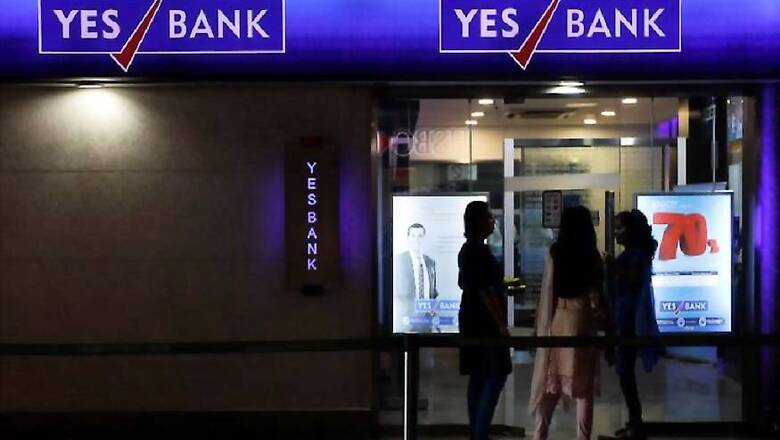
views
New Delhi: With the Reserve Bank of India (RBI) imposing a month-long moratorium on YES Bank and restricting the withdrawals that customers can make to Rs 50,000 until April 3, 2020, it is but obvious that account holders are having a difficult time.
Here is all you need to know if you are a customer of YES Bank:
What if you have multiple accounts?
A 'moratorium' means that a customer can withdraw a maximum of Rs 50,000 in this period from his/her savings or current or any other deposit accounts. If you have more than one deposit account with YES Bank, then the moratorium will apply cumulatively on all your accounts. There’s a small relief in cases of emergencies. The RBI has said that you could withdraw a higher amount of up to Rs 5 lakh for medical emergencies, payment towards higher education or for marriage.
This comes in the wake of deteriorating financials of the bank. Till the RBI figures out a restructuring plan, depositors of the bank will face some difficulties in accessing their funds. The RBI, however, has reassured the depositors that a solution will soon be worked out and that there is no reason to panic.
What happens in case of loans, EMI, insurance premiums or utility bill?
If you are repaying a loan to some other bank or non-banking finance company (NBFC), immediately inform your lender about the development. Your EMIs won’t stop even in such cases. But, typically, your lender can give you some leeway in terms of extending your deadlines for a couple of months. If you are hard-pressed for funds, or in case a chunk of your savings lie in Yes Bank, you may have to withdraw from your investments to tide over the crisis temporarily.
In case you have a loan repayment to be made to YES Bank itself – from your salary account with Yes Bank – then the bank will debit your bank account first towards the EMI liabilities. The remaining amount will then be available to you for withdrawals, subject to the overall cap imposed. However, if the amount in your YES Bank account is insufficient, then you are liable to pay the balance to the bank.
How safe are deposits in the bank account?
The deposits with all banks are guaranteed under the Deposit Insurance and Credit Guarantee Corporation (DICGC) to the tune of Rs 5 lakh, including interest, if your bank fails. However, this insurance kicks in only if your bank fails. This is not the case with Yes Bank, as the RBI has superseded the bank’s board and has initiated a restructuring plan.













Comments
0 comment